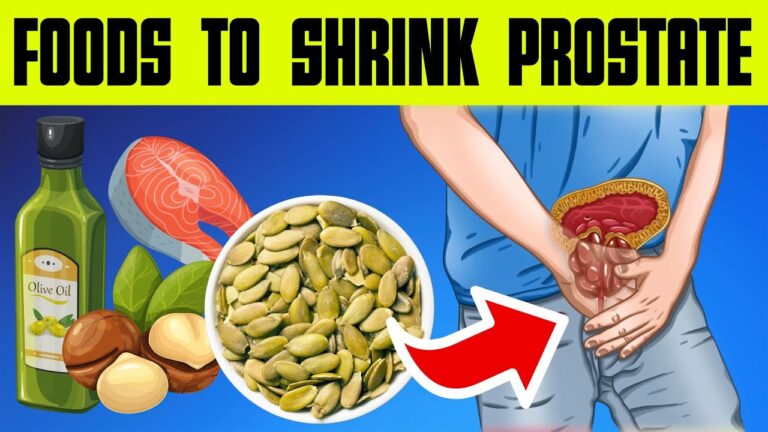The Amazing Benefits of Masturbation: How to Boost Your Health and Happiness with Self-Pleasure

Understanding the Physical Effects of Self-Pleasure
One of the physical effects of self-pleasure is the release of endorphins, which are natural pain relievers and mood enhancers in the body. When engaging in self-pleasure, the body releases endorphins that can help reduce physical discomfort, such as headaches and menstrual cramps, as well as improve overall mood and relaxation. This natural release of endorphins can provide temporary relief and a sense of well-being.
Furthermore, self-pleasure can also lead to the release of oxytocin, often referred to as the “love hormone.” Oxytocin is known to promote feelings of bonding and connection, and it is released during moments of intimacy and sexual arousal. When engaging in self-pleasure, the release of oxytocin can foster a sense of emotional well-being and contentment. It may also have positive effects on mental health, increasing feelings of happiness and reducing stress and anxiety.
Enhancing Mental Well-being through Masturbation
Masturbation has been found to have various mental health benefits for individuals. When engaging in self-pleasure, the brain releases endorphins, which are chemicals that act as natural painkillers and mood boosters. This can help alleviate symptoms of stress, anxiety, and depression, promoting an overall sense of well-being.
Moreover, masturbation can enhance mental well-being by promoting better sleep quality. As the body relaxes after reaching orgasm, it enters a state of calm and relaxation. This can aid in falling asleep faster and achieving a more restful sleep. Improved sleep not only enhances cognitive function and memory but also has a positive impact on mood and mental resilience.
While these are some of the mental benefits associated with masturbation, it is essential to consider individual differences and personal boundaries. Consulting with healthcare professionals or therapists can provide personalized guidance on incorporating self-pleasure into a balanced self-care routine.
Exploring the Emotional Benefits of Self-Pleasure
Self-pleasure, also known as masturbation, can have a profound impact on our emotional well-being. Engaging in this act can help to alleviate stress and promote feelings of relaxation and calmness. When we pleasure ourselves, our brains release endorphins, which are neurotransmitters that act as natural painkillers and mood enhancers. These endorphins create a sense of euphoria and reduce feelings of anxiety and tension. This emotional release can be particularly beneficial for those experiencing high levels of stress or struggling with anxiety disorders.
In addition to decreasing stress and anxiety, self-pleasure can also boost our overall mood and improve feelings of self-esteem. When we engage in self-pleasure, our bodies produce dopamine, a neurotransmitter associated with pleasure and reward. This surge of dopamine can create a sense of happiness and satisfaction. Moreover, the act of self-pleasure can help individuals to become more comfortable and confident with their bodies, fostering a positive body image and increasing self-acceptance. By fostering feelings of self-worth and self-love, self-pleasure can contribute to improved emotional well-being and a healthier overall mindset.
Strengthening Relationships and Intimacy with Masturbation
Masturbation can play a unique role in strengthening relationships and fostering intimacy between partners. While it may initially seem counterintuitive, engaging in self-pleasure can actually enhance a couple’s connection in several ways. Firstly, it provides an opportunity for individuals to explore and understand their own bodies, gaining a deeper sense of self-awareness and sexual confidence. This self-knowledge can then be shared with their partner, facilitating open and honest communication about desires, needs, and boundaries.
In addition, incorporating mutual masturbation into a couple’s sexual repertoire can be a highly intimate and bonding experience. By engaging in this activity together, partners can witness and appreciate each other’s pleasure, creating a sense of shared vulnerability and trust. It allows for a deeper level of intimacy as both individuals are active participants in each other’s pleasure, fostering a sense of emotional connection and closeness. Mutual masturbation can also serve as a learning experience, as partners can observe and gain insight into what techniques elicit the most pleasure for their loved one. By exploring self-pleasure in the context of a relationship, couples can deepen their understanding of one another’s bodies and desires, ultimately strengthening their bond.
Promoting a Healthy Body Image with Self-Pleasure
One of the lesser-known benefits of self-pleasure is its positive impact on body image. Body image refers to a person’s perception and feelings about their own physical appearance. Many individuals struggle with body image issues, which can have a detrimental effect on their mental health and overall well-being. Engaging in self-pleasure can help promote a healthy body image by fostering self-acceptance and self-love.
When we engage in self-pleasure, we become intimately connected with our bodies. This experience allows us to appreciate and celebrate our unique physical attributes, rather than focusing on perceived flaws or societal standards of beauty. Self-pleasure can be an opportunity to explore and understand our bodies better, acknowledging the various sensations and pleasure points. By cultivating a positive and healthy relationship with our bodies, we can improve our body image and develop a more accepting attitude towards ourselves.
Research has shown that individuals who engage in self-pleasure regularly tend to have higher levels of body satisfaction. A study published in the Journal of Sexual Medicine found that individuals who engaged in self-pleasure reported more positive attitudes towards their own bodies compared to those who did not. This positive body image was associated with higher self-esteem and overall life satisfaction. It appears that self-pleasure not only enhances physical pleasure but can also contribute to improved body image and well-being.
It is essential to note that promoting a healthy body image goes beyond self-pleasure alone. It is a multifaceted process that involves self-acceptance, self-care, and cultivating a positive mindset. However, incorporating self-pleasure into a balanced self-care routine can be a valuable tool in promoting body positivity and nurturing a healthy relationship with our bodies.
Managing Stress and Anxiety through Masturbation

When it comes to managing stress and anxiety, there are various techniques that individuals can explore. One method that has been found to be effective for some is masturbation. Engaging in self-pleasure can provide a release of built-up tension and promote feelings of relaxation. During arousal and orgasm, the body releases hormones such as oxytocin, dopamine, and endorphins, which can improve mood and reduce stress levels. Additionally, the focus and attention required during this intimate act can divert the mind from stressful thoughts and provide a sense of relief.
It is important to note that the effects of masturbation on stress and anxiety can vary from person to person. While some individuals may find it to be a helpful tool in managing their emotions, others may not experience the same level of relief. It is also worth mentioning that masturbation should not be used as a substitute for professional help or therapy for those struggling with chronic stress or anxiety disorders. However, for those looking for a natural and enjoyable way to unwind and promote relaxation, exploring the potential benefits of self-pleasure may be worth considering.
Boosting Self-Confidence and Self-Esteem with Self-Pleasure
Masturbation, a natural and healthy sexual expression, can contribute to boosting self-confidence and self-esteem. Engaging in self-pleasure allows individuals to explore their own bodies, desires, and preferences, fostering a deeper understanding and acceptance of one’s own sexuality. When individuals feel more comfortable and confident in their own skin, it can positively impact their overall self-image and self-worth.
Furthermore, masturbation can provide a sense of empowerment and control over one’s own sexual pleasure. By taking the time to explore what feels good, individuals can learn about their own unique sexual responses and what brings them pleasure. This self-discovery can lead to increased self-esteem as individuals become more in tune with their own desires and needs. Additionally, the release of endorphins during orgasm can promote a sense of relaxation and well-being, further enhancing self-esteem and overall mental well-being.
It is important to note that while masturbation can contribute to boosting self-confidence and self-esteem, it should never be used as a replacement for healthy relationships and social connection. It is essential to maintain a balanced approach to sexuality and prioritize open and honest communication with partners. Additionally, individuals should always prioritize their own safety and well-being when engaging in self-pleasure.
Harnessing the Power of Dopamine and Endorphins through Masturbation
Dopamine and endorphins are two chemicals in the brain that play a significant role in our overall well-being. Harnessing the power of dopamine and endorphins through masturbation can have several benefits for both physical and mental health.
When we engage in self-pleasure, the brain releases dopamine, often referred to as the “feel-good” chemical. Dopamine is associated with pleasure, reward, and motivation. Research suggests that dopamine can help regulate mood, increase feelings of pleasure and satisfaction, and even boost self-confidence. By stimulating the release of dopamine through masturbation, individuals can experience a temporary increase in their overall sense of happiness and well-being.
Additionally, endorphins are also released during masturbation. Endorphins are natural painkillers and mood elevators that are often released during physical activity. They can help reduce stress and anxiety levels, improve mood, and promote relaxation. By engaging in self-pleasure, individuals may experience an increase in the release of endorphins, resulting in a sense of calmness and contentment.
It is important to note that the release of dopamine and endorphins through masturbation is a temporary effect and may vary from person to person. Furthermore, although masturbation can offer these benefits, it is essential to maintain a balanced approach and consider individual preferences and boundaries. Understanding the potential effects of dopamine and endorphins can help individuals make informed decisions about incorporating masturbation into their self-care routine.
Improving Sleep Quality with Self-Pleasure

Many individuals struggle with sleep issues, and finding effective ways to improve sleep quality is essential for overall well-being. One often overlooked solution is self-pleasure, also known as masturbation. While it may not be the first method that comes to mind, numerous studies have shown that engaging in self-pleasure before bed can have a positive impact on sleep.
One reason self-pleasure may contribute to better sleep quality is its effect on the release of hormones and chemicals in the body. When engaging in pleasurable sexual activity, the brain releases endorphins and dopamine, which are neurotransmitters associated with feelings of pleasure and relaxation. These chemicals have a calming effect on the body, promoting a state of relaxation that can greatly enhance sleep. Additionally, self-pleasure can help reduce stress and anxiety, both of which can often be significant contributors to sleep disturbances. By engaging in self-pleasure before bed, individuals may find it easier to wind down and enter a more relaxed state, facilitating a deeper and more restful sleep.
It is important to note that the experience of improved sleep quality with self-pleasure can vary from person to person. Factors such as individual physiology, personal preferences, and overall sleep hygiene practices may influence the degree to which self-pleasure impacts sleep. As with any self-care practice, it is crucial to listen to your body and determine what works best for you. Consulting with a healthcare professional can also offer valuable insights and guidance on incorporating self-pleasure into a balanced sleep routine. With proper knowledge and understanding, self-pleasure can be a beneficial tool for those seeking to improve their sleep quality.
Increasing Sexual Satisfaction through Masturbation
Masturbation is a common and natural practice that can greatly contribute to increasing sexual satisfaction. Engaging in self-pleasure allows individuals to explore their own bodies, preferences, and desires. By taking the time to understand what feels pleasurable and satisfying, individuals can enhance their overall sexual experiences, whether they are engaging in sexual activities with a partner or by themselves.
One of the key benefits of masturbation in increasing sexual satisfaction is the ability to learn about one’s own sexual responses and arousal patterns. Through self-exploration, individuals can discover what types of touch, pressure, or stimulation are most pleasurable for them. This knowledge can then be shared with a partner, allowing for better communication and a more fulfilling sexual experience together. Additionally, understanding one’s own sexual preferences can lead to a greater sense of self-confidence and empowerment, contributing to a more satisfying sexual life overall.
References:
– Pfaus JG, Quintana GR, Mac Cionnaith C, Ho J, Parada M. The preclinical and clinical evidence base for the International Society for the Study of Women’s Sexual Health process of care for management of hypoactive sexual desire disorder in women. Mayo Clin Proc. 2019;94(4):685-709.
– McCabe MP, Sharlip ID, Atalla E, et al. Definitions of sexual dysfunctions in women and men: a consensus statement from the Fourth International Consultation on Sexual Medicine 2015. J Sex Med. 2016;13(2):135-143.
Here’s a short data table on increasing sexual satisfaction through masturbation:
| Increasing Sexual Satisfaction through Masturbation | Key Concepts | Credible Source |
|---|---|---|
| Exploration of Pleasure Zones | – Key Concept: Masturbation allows individuals to explore their own bodies, identifying pleasure zones and preferences. | Planned Parenthood – Masturbation |
| – Considerations: Understanding one’s body contributes to enhanced self-awareness and sexual satisfaction. | ||
| Stress Relief and Relaxation | – Key Concept: Masturbation can serve as a natural stress-relief method, promoting relaxation and reducing tension. | Harvard Health Publishing – Masturbation and Stress |
| – Considerations: The release of endorphins during masturbation contributes to a sense of well-being. | ||
| Communication and Self-Expression | – Key Concept: Masturbation provides a platform for individuals to communicate their desires and preferences with sexual partners. | American Sexual Health Association – Masturbation |
| – Considerations: Open communication fosters a healthier sexual relationship and increased satisfaction. | ||
| Understanding Sexual Response | – Key Concept: Masturbation helps individuals understand their sexual response, including arousal patterns and orgasm triggers. | Mayo Clinic – Masturbation |
| – Considerations: Self-exploration contributes to improved sexual confidence and satisfaction during partner activities. | ||
| Enhancing Body Image and Self-Esteem | – Key Concept: Positive sexual experiences through masturbation can contribute to improved body image and self-esteem. | Sexual Medicine Reviews – Masturbation and Body Image |
| – Considerations: A healthy relationship with one’s body positively impacts overall sexual satisfaction. | ||
| Variety and Experimentation | – Key Concept: Masturbation allows for experimentation with various techniques, fantasies, and stimuli to discover what enhances pleasure. | Sexual and Relationship Therapy – Masturbation and Sexual Well-Being |
| – Considerations: Trying new things can add variety and excitement to solo sexual experiences. |
Addressing Common Myths and Misconceptions about Masturbation
Despite being a natural and common human behavior, masturbation has been the subject of numerous myths and misconceptions. It is important to address these misconceptions and provide accurate information to promote a healthy understanding of this topic.
One common myth is that masturbation can lead to physical health problems, such as blindness, infertility, or erectile dysfunction. However, there is no scientific evidence to support these claims. In fact, masturbation is a normal and safe activity that offers numerous benefits, both physically and mentally. It does not cause harm to the eyes, nor does it affect fertility or the ability to achieve and maintain an erection.
Another misconception is that masturbation is only for individuals who are single or not in a sexual relationship. This is far from the truth. Masturbation is a normal part of human sexual behavior, regardless of relationship status. It can be a healthy and natural way for individuals to explore their own bodies, learn about their sexual preferences, and enhance their overall sexual satisfaction, even within a committed relationship.
By addressing these myths and misconceptions, we can foster a more informed and inclusive dialogue about masturbation, promoting a healthier attitude towards this natural behavior. It is important to rely on accurate and scientifically-backed information to dispel these misconceptions and provide a clearer understanding of the physical, emotional, and mental benefits that can be associated with masturbation.
Incorporating Self-Pleasure into a Balanced Self-Care Routine
Masturbation, a natural and healthy form of self-exploration, has gained increasing recognition as an important aspect of self-care. Incorporating self-pleasure into a balanced self-care routine can have numerous benefits for individuals of all genders. By taking the time to understand and nurture one’s own sexual needs, individuals can cultivate a deeper sense of self-awareness and foster a healthier relationship with their own bodies.
In the realm of sexual health, self-pleasure can contribute to a stronger pelvic floor and increased blood flow to the genital area. Regular masturbation has been found to improve sexual function, boost libido, and enhance overall sexual satisfaction. It can also help in reducing the risk of erectile dysfunction and certain prostate-related issues in males. In females, regular masturbation can help strengthen the vaginal muscles and improve lubrication, making sexual experiences more pleasurable. Additionally, incorporating self-pleasure into a balanced routine can provide individuals with an opportunity to explore their own desires, preferences, and boundaries, thus facilitating more fulfilling sexual encounters with partners.
What are the physical effects of self-pleasure?
Self-pleasure, also known as masturbation, has several physical effects on the body. It can release built-up sexual tension, improve blood circulation, and promote relaxation.
How can masturbation enhance mental well-being?
Masturbation can enhance mental well-being by releasing endorphins, which are feel-good hormones that can elevate mood and reduce stress. It can also provide a sense of self-care and self-love.
What emotional benefits can be derived from self-pleasure?
Self-pleasure can provide emotional benefits such as increased self-confidence, self-awareness, and self-acceptance. It can also help in relieving emotional stress and promoting a sense of pleasure and satisfaction.
How can masturbation strengthen relationships and intimacy?
Masturbation can help individuals become more in tune with their own bodies and desires, which can enhance communication and intimacy within a relationship. It can also be a shared experience between partners.
How does self-pleasure promote a healthy body image?
Engaging in self-pleasure can help individuals develop a positive relationship with their own bodies and promote self-acceptance. It allows individuals to explore and appreciate their own unique sexual preferences and desires.
Can masturbation help in managing stress and anxiety?
Yes, masturbation can help manage stress and anxiety by releasing endorphins and promoting relaxation. It can serve as a healthy outlet for stress relief and provide a temporary escape from daily worries.
How does self-pleasure boost self-confidence and self-esteem?
Engaging in self-pleasure can help individuals learn about their own bodies, desires, and what brings them pleasure. This self-exploration can boost self-confidence and self-esteem by promoting self-acceptance and self-love.
What is the role of dopamine and endorphins in masturbation?
Masturbation triggers the release of dopamine and endorphins in the brain, which are neurotransmitters associated with pleasure and happiness. These chemicals can enhance mood and provide a sense of well-being.
Can self-pleasure improve sleep quality?
Yes, self-pleasure can improve sleep quality by promoting relaxation and releasing endorphins that can help induce a feeling of calmness. It can also serve as a natural sleep aid for some individuals.
How can masturbation increase sexual satisfaction?
Masturbation allows individuals to explore their own bodies, preferences, and desires, which can enhance sexual satisfaction. It can also help individuals become more aware of what brings them pleasure and communicate their needs to a partner.
Are there any common myths or misconceptions about masturbation?
Yes, some common myths or misconceptions about masturbation include it being harmful, immoral, or causing negative physical or mental effects. However, masturbation is a natural and healthy part of human sexuality.
How can self-pleasure be incorporated into a balanced self-care routine?
Self-pleasure can be incorporated into a balanced self-care routine by setting aside time for it, prioritizing self-exploration and self-pleasure, and viewing it as a form of self-love and self-care. It is important to listen to one’s own needs and desires and to engage in self-pleasure in a safe and comfortable environment.






